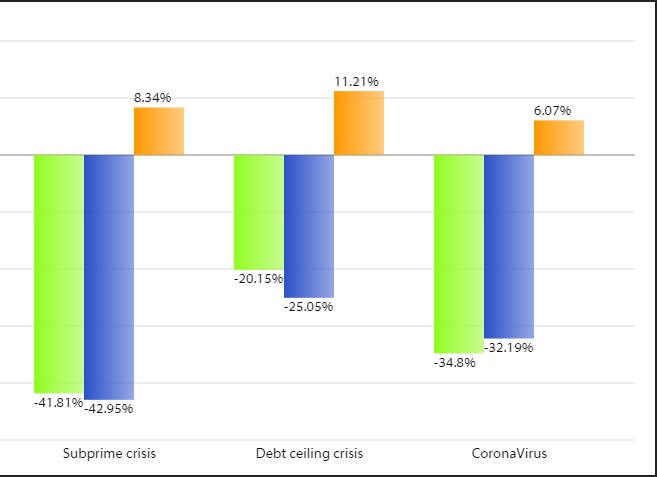Why bonds?
Good morning y'all!
Despite President Biden's insistence that his plan is to only increase income taxes for those making more than $400K per year, we're all paying a higher tax today.
In the form of inflation.
Recently reported at over 6%, if we consider how inflation was calculated the same way it was leading up to 1980, inflation is arguably closer to 15% currently.
But if we stick with the "official" inflation report of approximately 6%, that means 12 months from now, your dollar will only be worth 94 cents in purchasing power.
And it gets worse over time.
Which might have some of you wondering, "why bonds?"
For those who aren't familiar, except for clients' children or grandchildren, I advise an allocation to bonds (or fixed income) for all my clients.
I own bonds personally in my own portfolio.
And with high quality bonds (we use 7-10 year US Treasuries), paying approximately 1.35% and inflation at 6%+ it would seem foolish to continue holding bonds.
Right?
Not so fast there, buckaroo!
As I've written before, we don't own bonds for their income.
We don't own bonds for their potential to increase in price.
We own bonds as a "shock absorber" to help offset the short-term risk in stocks.
Quick refresher:
Short-term: stocks are volatile
Long-term: stocks are the best way to grow your money to keep ahead of inflation
We own bonds to help offset the short-term volatility in stocks in the hope we can hang on to the stocks long-term to enjoy their wealth building benefits.
And before you ask, no... there is no way to reliably time the market or pick which investments will do best at a certain point in time.
I don't do that. Ever.
So while bonds have had their own bouts of volatility in recent days and weeks, try not to lose sight of "why bonds."
Bonds are the vehicle to help you stay in stocks for the next several decades.
If we weren't human - and all emotional - we'd just put everything in stocks.
But that would mean having the grit to ride out the pain and suffering of seeing your portfolio drop 50% in value.
For a little more context on the role bonds play (and have played) in portfolios, I give you this:
Chart source: Kwanti Analytics
Let me explain...
The green bar is VTI, our total US stock market fund.
The blue bar is VEU, our total non-US stock market fund.
And the orange bar is IEF, our 7-10 year US Treasury bond fund.
The 3 periods shows in the chart, from left to right are:
September 30, 2008 to March 9, 2009 (Subprime Crisis)
July 7, 2011 - October 3, 2011 Debt (Ceiling Crisis)
February 20, 2020 - March 23, 2020 (Coronavirus)
And you can see how our bonds served as a portfolio shock absorber during these periods when compared to US and non-US stocks.
Does this mean things will always play out like this in the future?
Of course, not!
Past performance is not an indication of future results, and all that...
But history can be a useful guide, and that, my friends, is "why bonds."
Even in the face of rising inflation and potential higher interest rates in the future.
Any questions? Let me know...
Links & Things
I was recently joined on my podcast by Brian Yearwood. Brian is someone I've known for many years. I've worked with him personally, in fact. He's my go-to mortgage lending guy. As an independent broker, he's not limited to a single lender's flexibility. We cover that and much more in our conversation which you can check out here.
And check out my latest blog post about 7 ways women can build a confident and secure retirement plan.
Thank you, as always, for reading.
And if you have any questions or an idea for a future newsletter, podcast, or blog post topic, I'd love your input.
Just hit reply - I read (and appreciate) every email you send.
Until next Wednesday,
Russ





